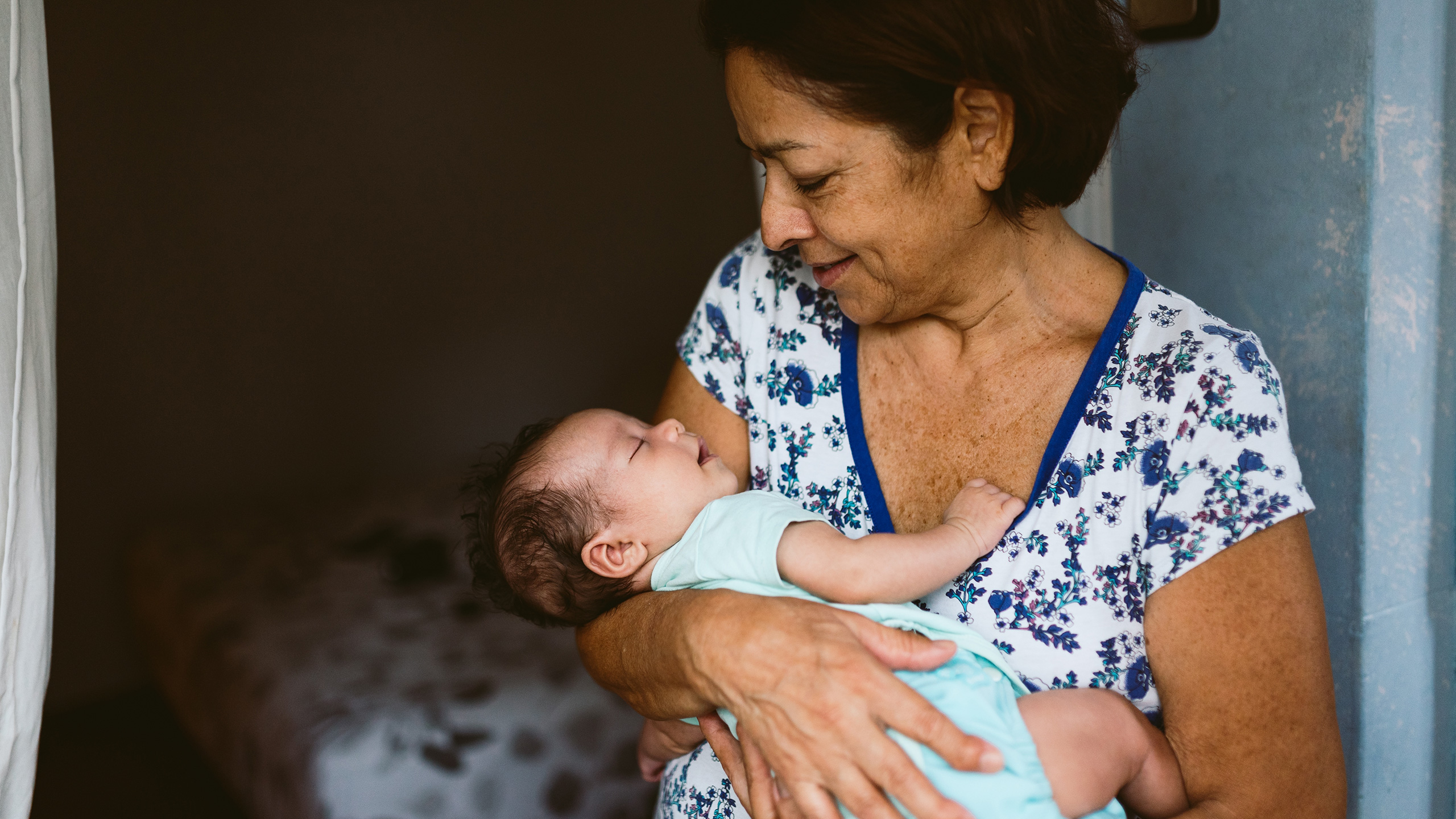Elliot’s Provocations unpacks current events in the early learning world and explores how we can chart a path to a future where all children can flourish. Regarding the title, if you’re not steeped in early childhood education (ECE) lingo, a “provocation” is the field’s term—taken from the Reggio-Emilia philosophy of early education—for offering someone the opportunity to engage with an idea.
We hope this monthly column does that: provocations are certainly not answers, but we hope Elliot’s Provocations helps you pause and consider concepts in a different way.
I recently attended a live Denver taping of the excellent podcast No One is Coming To Save Us. One of the podcast panelists was Colorado state representative Lorena Garcia, who is also executive director of the Colorado Statewide Parents Coalition. Garcia made a comment during the panel that stopped me in my tracks. Commenting on the availability of child care, and the commonly used concept of ‘child care deserts,’ Garcia said: “They are absolutely not child care deserts. They are licensed child care deserts. Because where there aren’t licensed facilities … there will always be a friend, a neighbor, or a family member there to take care of a kid that is in need.”
Garcia is absolutely correct. Child care policy too often ignores what is known in the sector as “family, friends and neighbor” care, or FFN for short. This is a problem, and it should stop.
If you drew a pie chart of where all kids below school age are on any given day, only about a third of them are in a ‘formal’ program like a licensed center or licensed home-based child care program. Another third are with one of their parents. The last third are with FFN caregivers – a group of caregivers numbering over five million. That’s a huge proportion of children and caregivers getting vanishingly little policy attention![1]
(I’m glossing over some major nuances: many more four-year-olds, and many less four-month-olds, are in formal care vs. informal care. Also, large numbers of households use multiple forms of care, one of which is usually FFN care. The point, I hope, is nonetheless clear.)
So why is FFN care such an afterthought in most child care policy proposals? Major federal bills, from the Build Back Better Act to the newest iteration of the Child Care for Working Families Act, are essentially silent on the issue. I think there are two factors at play here, one more practical and one more philosophical.
Practically speaking, FFNs are a difficult population for policymakers to get their hands around. The term FFN masks substantial differences: a significant percentage are paid (a miserable $7,400 a year on average), while most are unpaid. It can be unclear how to reach them because they are generally exempt from regulation: Grandmothers taking care of their grandchild do not have to register with the state. Research suggests that plenty see this as a calling and would like to have more engagement with and support from the broader child care system, while others are content to maintain their informal status.[2] Moreover, these can either be consistent or extremely dynamic care situations that change week-to-week. All told, traditional child care policy mechanisms like fee subsidy assistance don’t map well onto FFN care!
The philosophical question, I think, that throws some advocates and policymakers for a loop is this: how do you simultaneously push for a well-trained child care workforce and honor the relationship and knowledge that, say, a grandmother brings to bear with her own grandchild?
To me, the way out of the thicket is leaning on the dual distinctions between individual or very small group care vs. large group care, as well as between kin or fictive kin relationships vs. non-kin relationships.[3] Suggesting a grandmother does not need specialized training to care for her grandchildren suggests nothing about what we should expect if that same grandmother was caring for eight unrelated toddlers. What we need to do, instead, is make sure FFN caregivers have the support—monetarily, socially, and with regards to child development—that they need to feel comfortable and confident. How much each caregiver chooses to access that support will depend on individual circumstances. As Garcia said on the podcast, “We cannot just continue to take advantage of … FFN providers without ensuring that they are also properly equipped, that they are compensated.”
Garcia’s point surfaces a yet-deeper set of underlying questions: who gets to decide what type of care is worthy of public support and respect? If we require caregivers to establish a formal relationship with the state in order to get resources—particularly knowing what populations that excludes—what does that say about our commitment to true parental choice? If caregiving is labor, if caregiving supports child development, if caregiving boosts the economy, if caregiving enables family flourishing, then how can we say only institutional programs belong within child care policy? The implication that embracing informal caregivers will somehow cheapen or hurt the effort for child care to be taken seriously or well-funded is revealing: we should reject the premise.
In fact, advancing a better deal for FFN providers is not only the right thing to do on the merits, it also carries political benefits. A child care movement and policy agenda that excludes FFN care and excludes stay-at-home parents is excluding two-thirds of its direct constituency! It also leaves the movement vulnerable to opponent attacks. Leaning into the assets FFN providers bring—such as robust relationships, proximity to families, cultural responsiveness—will broaden and strengthen the sector’s efforts.
There are hints of what this could look like. The Hechinger Report recently reported on FFN care and featured Hawaii, the state with by far the most FFN care because “friend, family and neighbor care is valued both culturally and by necessity.” Hawaii has developed several promising models for engaging these caregivers in organic training opportunities that also serve to build social connections. Garcia praised Colorado for using some of their pandemic relief funding to hire a full-time staffer in the state’s Department of Early Childhood focused on FFN issues, establish an FFN advisory council, and offer professional development to FFN providers. Colorado is also home to a first-in-the-nation direct cash payment pilot for these caregivers. In another vein, the Home Grown philanthropic collaborative has put forth a series of FFN-related policy recommendations.
As you can imagine, such models and policies require resources. Yet, as the Hechinger article explains, “nationwide, aid for family and friend caregivers is rare. In 23 states, there are no known statewide supports for relatives and friends who provide child care.” And in most states that do offer aid, what support exists is meager or has high barriers. For example, FFN caregivers are technically eligible to become recipients of subsidy vouchers for low-income children, but in general the process is extremely onerous and payment rates miserly.
The most immediate step forward would be for policymakers and advocates to start fully embracing FFN care as a critical component of a healthy and vibrant child care system. (The same goes for stay-at-home parents, which I will talk about in a subsequent column). FFN providers, and groups that seek to uplift them, should be at policy development tables. More research should be conducted to determine and advance aligned solutions. Family, friend and neighbor caregivers have been doing the work for a long, long time. It’s time that child care policy finally had their backs.
My gratitude to Home Grown’s Natalie Renew for reviewing a draft of this column and providing invaluable feedback and insights.
[1] FFN care is especially essential for rural and immigrant populations, as well as those who work non-traditional hours (nights and weekends).
[2] Even more confusingly, FFN caregivers are sometimes lumped in with either licensed family child care providers on the one hand (i.e., paid individuals who care for multiple non-related children in their home, and who have some sort of formal relationship with the state) and with stay-at-home parents on the other hand.
[3] “Fictive kin” refers to individuals who are not blood related but have an emotionally significant relationship to an individual; it’s the friend or neighbor who may as well be family.




